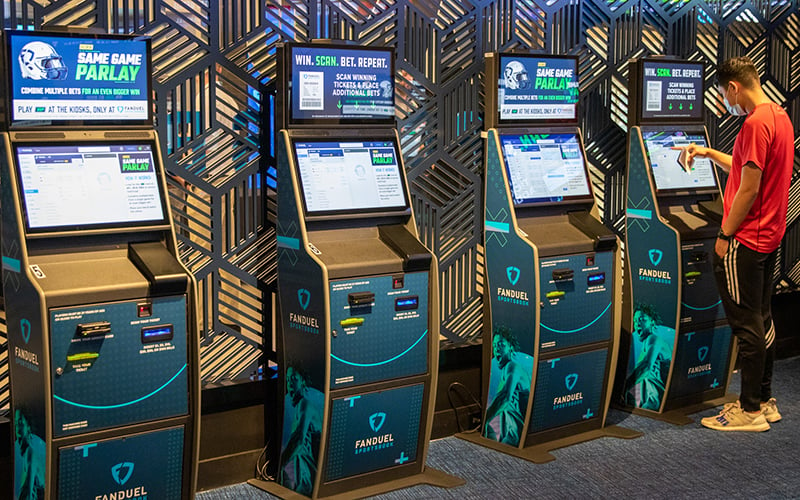LOS ANGELES – California will host Super Bowl LVI in Inglewood this weekend, but sports betting isn’t legal in the state. Experts say that doesn’t mean no one in California is wagering on the big game, it’s just happening illegally and in secret – something legalization advocates are vying to change.
“When you take stuff out of the darkness … it’s going to be better,” said Steve Bornstein, president of North America Genius Sports, speaking at a panel Wednesday during the run-up to Sunday’s matchup between the Cincinnati Bengals and L.A. Rams.
“Ultimately, that’s how you’re going to connect with more fans, gamifying the content.”
Bornstein’s comments come as various groups are trying to get ballot initiatives approved to legalize sports betting in California.
Arizona legalized sports betting in 2021 and saw $1.2 billion through its first three months of operations, according to the Arizona Department of Gaming, and industry experts predict Super Bowl bets will top $100 million in the state.
Thirty states have legalized sports betting, and the competition to legalize sports betting in California is heated. In the United States alone, sports betting is estimated to be a $150 billion dollar industry, according to Legal Sports Betting.
Proponents of one new sports betting initiative in California say allowing gambling here is about more than winning – it’s about improving the lives of people experiencing homelessness across the state.
The California Solutions to Homelessness and Mental Health Support Act, an initiative that’s still in the early stages of getting signatures to land on the November 2022 ballot, is backed by seven U.S. sportsbooks, including major players FanDuel, DraftKings and BetMGM.
The initiative would place a 10% tax on online betting profits, which would be put into an online sports betting trust fund. Eighty-five percent of those funds would go toward helping cities and counties address homelessness and support mental health programs, according to the initiative filed with the California Department of Justice office.
According to the state’s Legislative Analyst’s Office, this could generate “mid-hundreds of millions of dollars” annually in the trust fund alone. Big numbers like that could have a profound effect on homelessness in California, where 161,548 people were living on the street in January 2020, according to the latest federal estimates.
“It’s a great way to legalize it (sports betting) and try to get some tax base out of it for an absolutely important issue,” said Jennifer Friedenbach, executive director of Coalition on Homelessness, which works to create permanent solutions to homelessness while working to protect the human rights of those forced to remain on the streets.
To make it to the ballot, the initiative will need 997,139 signatures before June 30. As of now, supporters are 25% of the way there, according to PlayCA, a national site that provides readers with news and resources related to legal, regulated online gambling options in the United States.
Four mayors have publicly backed the initiative, including Sacramento’s Darrell Steinberg, Fresno’s Jerry Dyer, Oakland’s Libby Schaaf and Long Beach’s Robert Garcia, who all released statements in support.
Three other initiatives are vying to get on the ballot as well, with two backed by tribal groups and the other backed by cardrooms (commercial gaming establishment) in California. All of them could be on the ballot this November if they meet the signature quota, leaving voters with the ultimate choice.
With a population of 39 million, California long has been coveted when it comes to legalizing sports betting.
“California is the holy grail, it’s the biggest piece out there,” said Peter Schoenke, board member of the Fantasy Sports and Gaming Association.
Although sports betting could be a step toward alleviating homelessness in California, it’s a money machine for all states.
“We think that California could generate roughly $40 billion a year in wagers – and as much as $50 billion a year on the most optimistic side,” said Zack Hall, media relations lead for PlayUSA, a sports betting site.
Numbers in almost all the other states would likely pale in comparison. To give some context, New York, which recently legalized sports betting, had a first month of $1.6 billion in bets placed – which is the record for most wagers placed in a month.


